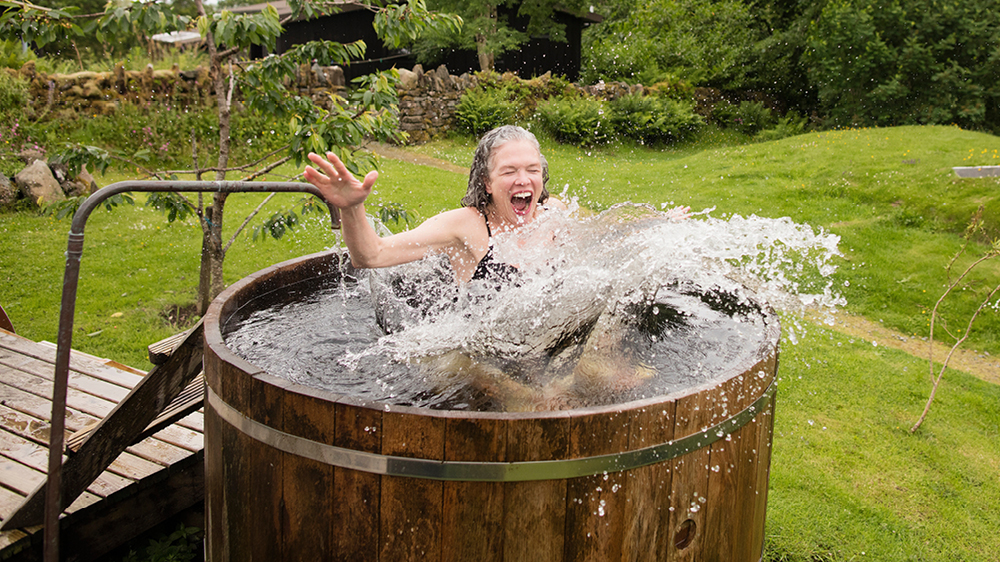Ice baths are a popular recovery method used by athletes and fitness enthusiasts. Cold temperatures can have many physical and mental benefits, but they may not be for everyone. Here is everything you need to know about ice baths.
Benefits of ice baths
Ice baths are a stressor that causes the body to push past its comfort level for physical and cognitive benefits.
- Better sleep: Studies have shown that athletes have better sleep quality after ice baths.
- Elevated mood: Ice baths trigger the release of dopamine, which results in feelings of contentment.
- Muscle recovery: Ice baths change blood and lymph circulation. Blood vessels constrict in cold temperatures and widen when they warm up. This process helps muscles get rid of waste while bringing them important nutrients and oxygen more quickly. Ice baths also reduce inflammation.
- Reduces stress: Studies show cold temperatures stimulate the vagus nerve, which can help lower stress levels and relax. During an ice bath, your body releases norepinephrine and epinephrine, also known as fight-or-flight hormones. Purposefully experiencing these hormones helps your brain practice keeping your mind clear and calm during stressful events.
Learn more ways to improve sleep and reduce anxiety.
How do I take an ice bath?
An ice bath should typically last one to five minutes. Longer baths do not provide extra benefits. A single ice bath should not exceed 15 minutes. Experts suggest aiming for a total of 11 minutes a week or 2-4 sessions per week.
You should try to aim for water temperatures between 50- and 59-degrees Fahrenheit.
After the bath, consider taking a short, warm shower. The nervous system response can be a pre-workout booster and can enhance performance.
Ice baths and risks
While ice baths offer many benefits, they are not right for everyone. If you have certain health conditions or health history, consult with your primary care provider before taking an ice bath.
- Cardiovascular conditions
- Circulatory issues
- History of frostbite
- Open wounds
- Recent surgery
Prolonged exposure to extreme cold can trigger heart palpitations or cardiovascular events. If your temperature is too cold, you could experience hypothermia or frostbite. It is important to ensure proper water temperature and bath length.


